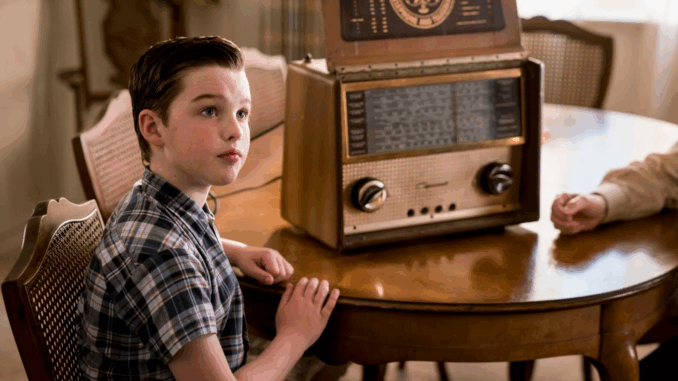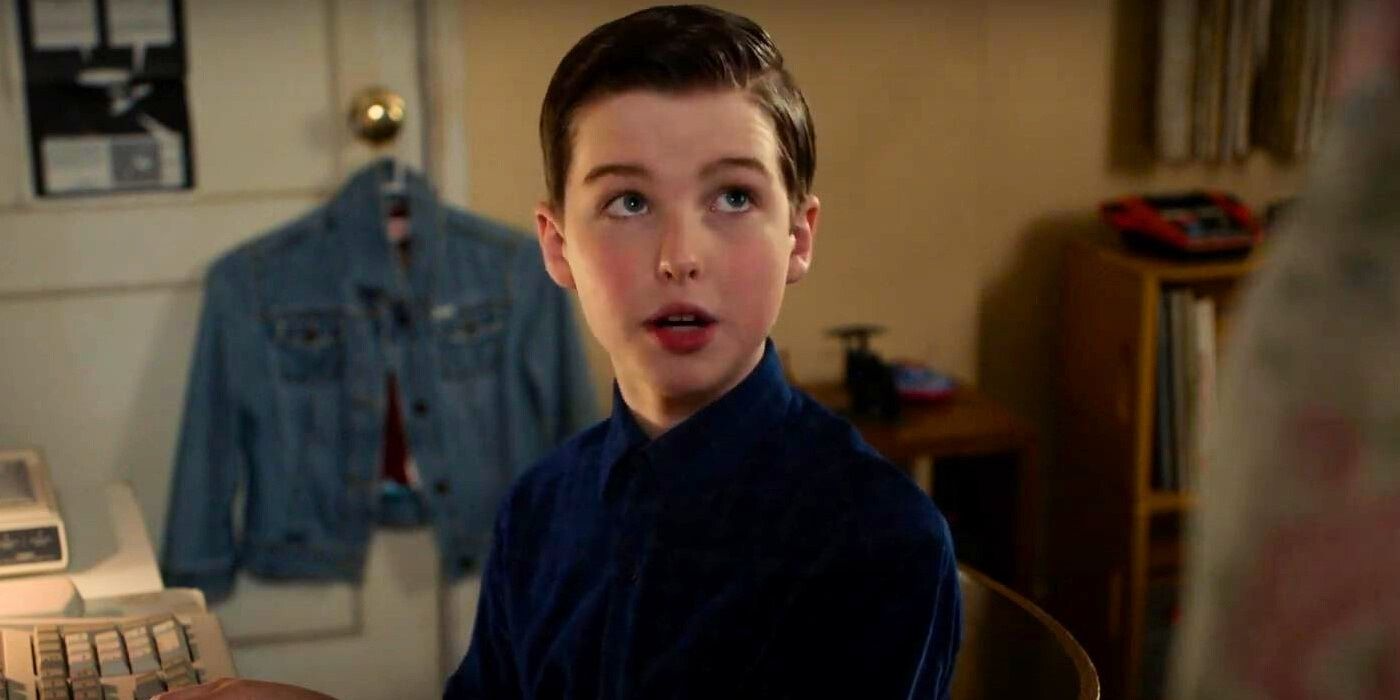
Let’s get straight to it: Young Sheldon Season 7, Episode 12 — “Funeral” — is the single most emotionally devastating episode in the entire Big Bang Theory universe. Yes, including Sheldon’s Nobel Prize win. Yes, even Amy’s acceptance speech.
Why? Because for the first time, we see Sheldon truly break. And it’s not quirky. It’s not played for laughs. It’s raw, unfiltered grief. And it hits harder than anything Jim Parsons’ adult version ever conveyed.
The Death of George Sr. Changed Everything
Fans of The Big Bang Theory knew it was coming. Adult Sheldon had mentioned his father’s death several times — usually with detachment or awkward humor. But Young Sheldon made us feel it.
Season 7, Episode 12 – “Funeral”
This is the episode where everything snaps into focus. George Sr., played brilliantly by Lance Barber, dies suddenly of a heart attack. What follows isn’t a laugh track. It’s pain, silence, and uncomfortable stillness.
And Sheldon — brilliant, distant, emotionally stunted Sheldon — stands at the center of it, absolutely shattered.
A Family in Pieces
The strength of this episode lies not just in Sheldon’s reaction, but in everyone else’s.
-
Missy’s breakdown feels like a dagger to the chest.
-
Mary’s devastation is chilling in its quiet despair.
-
Georgie stepping up as the man of the house? It’s subtle, but powerful.
This wasn’t just about Sheldon. It was about the entire Cooper family collapsing in real time — and somehow trying to hold each other up.
Why It’s More Powerful Than Anything in The Big Bang Theory
Emotional Stakes Over Intellectual Jokes
Let’s be honest: The Big Bang Theory was a sitcom. A great one. But it rarely let Sheldon be vulnerable. His quirks were punchlines. His trauma was background noise. Even his big emotional moments — like the Nobel Prize — felt filtered through the show’s comedic lens.
But in Young Sheldon, there’s no filter. Just grief. Just raw, human pain.
Iain Armitage’s Performance Is Next-Level
Young actor Iain Armitage gave a performance that was quiet, controlled, and devastating. When Sheldon realizes what’s happened, he doesn’t scream. He doesn’t cry. He dissociates.
And that — that blank stare of a child who can’t compute what just happened — is more impactful than a thousand speeches.
Adult Sheldon Finally Cracks — Through a Child
The episode is made even more powerful by the narration of Jim Parsons, the original Sheldon. His normally cheeky voiceover falters. For once, he’s not above it all. He doesn’t joke. He simply says:
“That was the day everything changed.”
That’s when it clicks. Young Sheldon didn’t just add to the franchise — it elevated it.

Fan Reactions Prove This Episode Hit Hard
Twitter (now X) and Reddit were flooded with reactions:
-
“I thought I was prepared for George Sr.’s death. I wasn’t.”
-
“This was better than anything in The Big Bang Theory. There. I said it.”
-
“If Iain Armitage doesn’t win an Emmy, I riot.”
Even long-time Big Bang fans admitted the spin-off surpassed expectations — emotionally and narratively.
Thematic Depth That Big Bang Rarely Explored
The Fragility of Genius
We’ve always seen Sheldon as a genius — aloof, arrogant, awkward. But this episode reminds us that intellect doesn’t protect against trauma. It doesn’t soften grief. It doesn’t prevent heartbreak.
The Roots of Sheldon’s Flaws
This moment becomes the origin story of his emotional distance. His inability to cope. His struggles with intimacy. Watching George die, and seeing Sheldon shut down, retroactively explains everything about the adult Sheldon.
The Episode That Ties the Whole Universe Together
This isn’t just a powerful moment in Young Sheldon. It recontextualizes Sheldon Cooper entirely. His coldness, his obsession with routine, his awkwardness — all of it traces back to this fracture point.
It’s the emotional nucleus of The Big Bang Theory — and it didn’t even happen in that show.
Conclusion — Young Sheldon Did What Big Bang Never Dared To
There were a lot of reasons to be skeptical when Young Sheldon first premiered. A sitcom prequel about a nerdy kid? Really?
But seven seasons later, it gave us the franchise’s most meaningful episode — one that dared to be quiet, to be painful, to be real.
And in doing so, it gave us something Jim Parsons’ version never could: